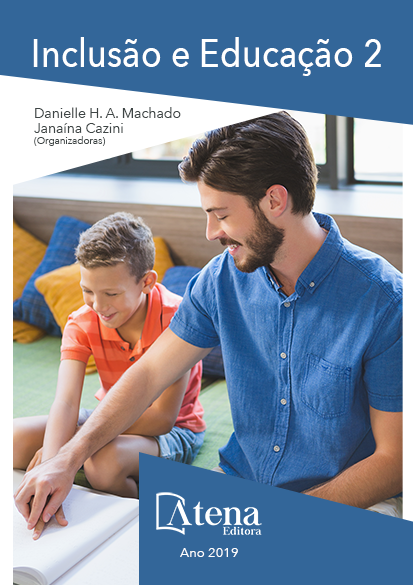
PRÁTICAS PEDAGÓGICAS INCLUSIVAS NO CONTEXTO DA EDUCAÇÃO BILÍNGUE DE ESTUDANTES SURDOS DOS ANOS INICIAIS DO ENSINO FUNDAMENTAL
A inclusão do estudante surdo
em sala de aula comum do ensino regular foi
questionada nos últimos anos, principalmente,
em função dos constantes desempenhos
negativos apresentados por eles. Diante disso,
a educação de surdos tem sido amplamente
discutida, sobretudo quando se trata de
assegurar a esse público uma educação
bilíngue. Para que o professor desenvolva
práticas pedagógicas inclusivas que possibilitem
o acesso e a permanência desses estudantes
na escola, bem como uma aprendizagem
significativa, é necessário considerar as
especificidades linguísticas do estudante
surdo, independente do nível escolar que ele
se encontre. Assim, O objetivo deste estudo é
investigar as práticas pedagógicas inclusivas
utilizadas no processo de alfabetização e
letramento de estudantes surdos no contexto da
educação bilíngue. A pesquisa foi realizada em
duas salas regulares bilíngues para estudantes
surdos da rede municipal de ensino da cidade do
Recife. Participaram deste estudo professores
e estudantes surdos. A coleta de dados ocorreu
mediante dois momentos: o primeiro por meio
de uma entrevista semiestruturada; o segundo,
por meio de quatro observações feitas em
dias diferentes. Os dados foram analisados de
acordo com a proposta de análise de conteúdos
de Bardin. Os resultados revelaram que as
práticas pedagógicas dos professores das salas
observadas estão alinhadas aos princípios
da educação bilíngue, na qual o estudante
surdo tem a garantia de um ensino acessível,
considerando as suas especificidades
linguísticas e tendo como língua de instrução a
língua de sinais.
PRÁTICAS PEDAGÓGICAS INCLUSIVAS NO CONTEXTO DA EDUCAÇÃO BILÍNGUE DE ESTUDANTES SURDOS DOS ANOS INICIAIS DO ENSINO FUNDAMENTAL
-
DOI: 10.22533/at.ed.3081915018
-
Palavras-chave: Práticas Pedagógicas. Educação Bilíngue. Estudantes Surdos.
-
Keywords: Pedagogical Practices. Bilingual Education. Deaf students
-
Abstract:
The inclusion of the deaf student
in a regular classroom was questioned in recent
years, mainly due to the constant negative
performances presented by them. In view
of this, the education of the deaf has been
widely discussed, especially when it comes to
assuring this audience a bilingual education.
In order for the teacher to develop inclusive
pedagogical practices that allow the access
and permanence of these students in school, as
well as meaningful learning, it is necessary to
consider the linguistic specificities of the deaf student, independent of the school level
that he is. Thus, the objective of this study is to investigate the inclusive pedagogical
practices used in the process of literacy and literacy of deaf students in the context of
bilingual education. The research was carried out in two regular bilingual rooms for
deaf students of the municipal teaching network of the city of Recife. Teachers and deaf
students participated in this study. Data collection took place through two moments: the
first through a semi-structured interview; the second through four observations made
on different days. The data are analyzed according to the proposed content analysis
of Bardin. The results showed that the pedagogical practices of the teachers of the
rooms observed are in line with the principles of bilingual education, in which the deaf
student is guaranteed an accessible teaching, considering their linguistic specificities
and having as their language of instruction the sign language.
-
Número de páginas: 15
- wilma sousa


